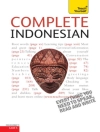Essentials of Research Methods for Educators provides future teachers, specialists, administrators and educational leaders with a textbook and a resource that goes beyond the classroom to use in your career. With a focus on the wide variety of data available to educators and the importance of data literacy for all those involved in education, this book presents research methods in a relatable educational context with a variety of concrete examples. The authors use their expertise in educational psychology to optimize learning. The structure of the book breaks down research into discrete steps with the ‘Let′s See It, ‘ ‘Let′s Do It, ‘ and ‘You Do It’ steps for each chapter so students feel motivated to complete their research projects. By covering qualitative, quantitative, and mixed methods research, with additional chapters on action research and program evaluation, students get a complete picture of the current research methods landscape. This highly scaffolded book supports future educational leaders in incorporating research and methods into their work and life.
Tabla de materias
Chapter 1: Introduction to Research
The Importance of Educational Research
Research as a Scientific Method
Basic Research Versus Applied Research
Ways in Which Educators Can Become Reflective Educator-Researchers
Key Logistical Factors and Diversity, Equity, and Inclusion Considerations in Conducting Research
Ethical Considerations
A Look Ahead: Organization of This Book
Chapter 2: Reviewing the Literature
Critical Issues in the Workplace
The Purpose of a Literature Review
Conduct a Literature Review
Synthesize Research
Formulate Research Problems or Questions
Ethical Considerations
American Psychological Association Style
Chapter 3: Research Design: The What, When, and How of Research
Introduction to Research Methodology and Design
Comparison of Quantitative and Qualitative Methodologies
Diversity of Research Designs Across Methodologies
Making Decisions About Research Methodology and Design
Cross-Cutting Themes for Research Methodology and Design
Ethical Considerations
American Psychological Association Style
Chapter 4: Non-Experimental Research Designs
Using Non-experimental Designs
Descriptive Designs
Correlational Designs
Comparative Designs
Ethical Considerations
American Psychological Association Style
Chapter 5: Experimental Research Designs
Deepening Knowledge About Threats to Internal Validity
Internal Validity Within Experimental Designs
Pre-Experimental Designs
True Experimental Designs
Quasi-Experimental Designs
Single-Participant Designs
Ethical Considerations
American Psychological Association Style
Chapter 6: Qualitative Research Designs
What Is Qualitative Research?
The Dynamic Nature of Qualitative Research
Types, Purposes, and Features of Qualitative Research Designs
The Qualitative Research Process
Ethical Considerations
American Psychological Association Style
Chapter 7: Mixed Methods Research Designs
Mixed Methods Research
Commonly Used Mixed Methods Research Designs
Development of a Mixed Methods Design Study
Making Sense of the Findings From Mixed Methods Research
Ethical Considerations
American Psychological Association Style
Chapter 8: Action Research for Educators
What Is Action Research?
Action Research and Other Research Methods
Rationale for Conducting Action Research for Work-Related Problems
Practical and Participatory Action Research
The Cycle of Action Research
Ethical Considerations
American Psychological Association Style
Chapter 9: Program Evaluation
Characteristics of Program Evaluation
Research Studies and Program Evaluations
Elements of Program Theory and Logic Models
Types and Purposes of Program Evaluations
Engaging in a Program Evaluation
Ethical Considerations
American Psychological Association Style
Chapter 10: Sampling and Measurement Learning Objectives
Sampling-Related Terminology
Probability and Non-probability Sampling Techniques
Sampling Across Quantitative, Qualitative, Mixed Methods, and Action Research
Measurement and Measurement Error in Research
Levels of Measurement
Types of Validity in Measurement
Types of Reliability in Measurement
Chapter 11: Data Collection
Intersection of Data Collection Instruments and Sources
Quantitative Data Collection Instruments Used in Educational Settings
Qualitative Data Collection Instruments Used in Educational Settings
Selecting Data Collection Instruments
Chapter 12: Descriptive Statistics
Key Components and Nature of Datasets
Purpose and Importance of Descriptive Statistics
Examining Distribution of Scores for a Variable
Central Tendency: Identifying the Most Typical or Representative Score of a Distribution
Measures of Variability Among Scores in a Distribution
Metrics to Capture the Relative Standing of Individuals From a Larger Group
Examining the Correlation Among Variables in a Dataset
Chapter 13: Inferential Statistics
The Purpose of Inferential Statistics
Measures of Variability
Probability and Statistical Significance
Hypothesis Testing and Statistical Significance
Various Inferential Tests
Chapter 14: Qualitative Analysis
The Researcher as the Instrument in Qualitative Research
Strategies for Developing Codes in Qualitative Data
Strategies for Building Themes in Qualitative Data
Comparison of Data Analysis Principles Across Research Design
Chapter 15: Communicating Research
The Importance of Communicating Research
Approaches to Written and Oral Communication of Research
Key Considerations When Communicating Research
The Role of Self-Regulated Learning in the Communication of Research
Chapter 16: Using Research to Guide Practice
Connecting Research With Practice
Evaluating the Quality of Research
Uses of Research for Teachers
Uses of Research for Administrators
Uses of Research for the Community and Policymakers
Using Research to Impact Higher Education Programs and Professional and Personal Growth
Applying Research Findings to Practice Using the Cycle of Self-Regulated Learning
Sobre el autor
Suzanne E. Hiller, Ph D, has worked in the field of education as a practitioner, professor, researcher, and evaluator for over three decades. Notably, she was the Teacher Naturalist with the Smithsonian Institution’s National Museum of Natural History. She has served as an assistant professor teaching educational psychology, program evaluation, research, and preservice teacher courses in curriculum and assessment. While affiliated with Wingate University, she was the Director of the Graduate Education Program and the Director of Multidisciplinary Studies in Education with Hood College. Currently, she is the Executive Director of the Blue Swallow Farm Foundation, an organization dedicated to promoting inclusive, authentic experiences in outdoor education through research and training while motivating students in STEM careers. In light of this mission, Suzanne E. Hiller has been working with educators, administrators, researchers, and scientists on a variety of projects related to professional development, curriculum development, and research, with a particular emphasis on outdoor classrooms and citizen science. Most recently, she has conducted a series of research studies on the impact of water quality programs on student STEM achievement, career motivation, environmental attitudes, and social-emotional well-being. Through this type of research, professional development on designing and utilizing About the Authors xxxi outdoor classrooms, curriculum resources for educators, and mentorship and support for doctoral students, she continues to encourage growing interest in providing students with exposure in STEM activities within natural settings. In support of educational research at large, Suzanne E. Hiller has served on the editorial board for the International Journal of Mathematical Education in Science and Technology and the Journal of Experimental Education. She has also been a reviewer for a variety of journals, such as Learning and Individual Differences; Learning, Culture, and Social Interaction; and Heliyon. She has written one book on using metacognitive and self-regulatory strategies to promote student science achievement and coedited one book on fostering STEM career motivation through citizen science. Her background in motivation and self-regulation was particularly relevant as a co-principal investigator on a grant from the Maryland Governor’s Emergency Relief Fund to provide assistance for teachers during the recent health crisis. Using an online format, the program serviced












